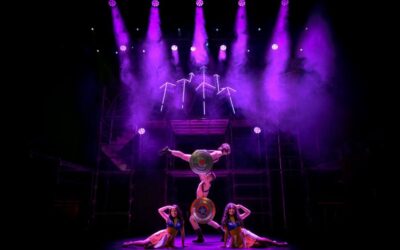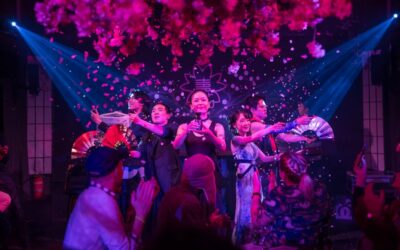A Brittany Higgins inspired play by award winning playwright Sally Faraday premieres In Melbourne on July 4 at Theatreworks. In The Long Game, sisterhood, sexual assault and political power explode on stage as we follow the story of one of Australia’s key political families and an assault allegation that turns their lives around.
Working for the first time together, Faraday and actor/co-producer Petra Glieson drew inspiration from the Australian political landscape including the high-profile Britney Higgin’s case, Grace Tame and Julia Gillard’s time in power.
“I decided I wanted to write the play because I was royally pissed off about Brittany Higgins ultimately,” says playwright Faraday. “I was angry about the way she had been treated by public commentators and the media. Everyone’s first instinct was to diminish and dismiss her complaint. People I thought I respected were so quick to suggest that she was somehow complicit in her own assault because she’d been drinking, because she’d gone alone with the perpetrator into a quiet office after hours – what did she think was going to happen? Added to this was my dismay that there seemed to be no safe way for victims of assault to report an incident in Parliament House – and there was no HR department. It seemed that one of the most important institutions in the country was not listening to women and I felt that this ought to change.”
This is story that has significance for Faraday personally as, she says, she has friends and colleagues who have been subject to assault with many who have chosen not to report it. “The experience of coming forward is often so confronting that many victims just don’t bother,” she says. “Sometimes the criticism they are subjected to after the fact is often as traumatising as the event itself – not to mention the public commentary if their accusation involves a person with a public profile.”
Faraday believes there needs to continue to be a conversation about the process assault victims must go through in order to report the incident. She believes this is improving but it continues to be a challenge for victims. “Prima Facie explored the experience of victims brilliantly and in the end was instrumental in engendering change in the way judges instruct juries in rape cases in the UK. I would love it if ‘The Long Game’ could be as effective in a real-world sense. We are working with the Victorian Women’s Trust on a Q and A following our show on the 5th of July where we will unpack some of the issues around reporting for victims. Some of these processes are currently under review and the Women’s Trust have made their own submission to the review into legal responses to sexual assault.”
The Long Game is also an important reminder about how female led stories are holding a mirror to the ‘Feminist sisterhood’. But what exactly is the ‘Feminist sisterhood’ – Faraday admits it is such a loaded term – and how vital are female led stories to our theatrical landscape. “In Australian politics the whole thing seems to crystalise around the idea of quotas (the percentage of women in leadership positions). A recent report into the prevalence of women in Australian boardrooms revealed numbers that left a lot to be desired. That phrase, ‘you can’t be what you can’t see’ is so important I think in this instance and so yes, having more female led stories on stage is vital.”
It would come as no surprise that as a playwright Faraday is really interested in difficult stories with a keenness to try and unpack the curly aspects of human behaviour. “I always find that I’m fascinated by the strange things that people do that seem to defy explanation,” she says. “I think theatre is the ultimate medium to explore this. – It’s such a ‘present’ artform and a great way to unpack the weird aspects of humanity as it focuses on the small interactions between people which is where all the meat really exists.”
Through the lives of two generations of women, the play takes an unapologetic look at the culture of misogyny in Australia’s political system. Faraday and Glieson shine a light on the public conversation and media commentary which perpetuates ‘rape myths’ and perceptions of ‘appropriate’ victim behaviour. The story also looks at ‘feminist solidarity’ amongst women forging their careers in the corridors of power.
Speaking about her relationship with Glieson, Faraday admits she has long wanted to work creatively with her. “We work together as educators, but I have seen her previous performances on stage and admired how open she is and how she totally embodies a character. Her commitment is astonishing. She always gives more than 100 percent to a performance.”
Says Faraday,” These performances are something else. Myself and Petra have been really blessed to attract an amazing creative team and every aspect of the show is testament to the passionate commitment of these amazing professionals. All the creative elements really come together and I’m so proud of what we’ve been able to achieve.”
July 4 – 13





